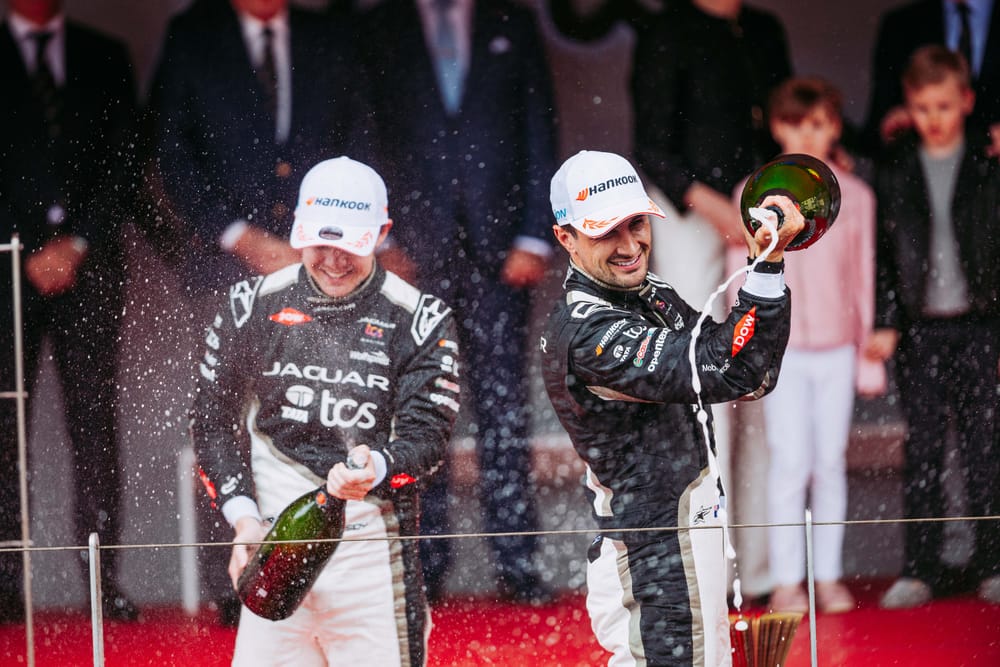There are many rare qualities needed for getting elusive 1-2 results in Formula E. Strategic elegance, efficiency and aggression are some of those. But how about telepathy?
At times during the 31 laps of the Monaco circuit on Saturday afternoon it felt like the almost-lifelong friendship of Mitch Evans and Nick Cassidy had morphed into something with a hint of the paranormal about it, such was the relative ease in which the two Jaguar drivers’ orchestration worked out.
The fact it was at both the Kiwis’ adopted homes and on the weekend where Jaguar committed its long-term future to Formula E made it all the more notable and sweeter.
For Evans in particular it was rammed with emotion. He’d finished second and third in the Principality in recent FE races there and the breakthrough win came less than a week on from the death of his racing mentor and sometime patron Sir Colin Giltrap.
So, the sentimental then mixed with the pragmatic, as the two Jaguar I-Type 6s took an almost-photo finish to extend the works squad’s teams’ championship lead and properly thrust Evans into his long-held quest for the Formula E drivers’ title.
But he didn’t do it alone. And why was he the one who ended up winning?
The pre-race incident that cost Cassidy
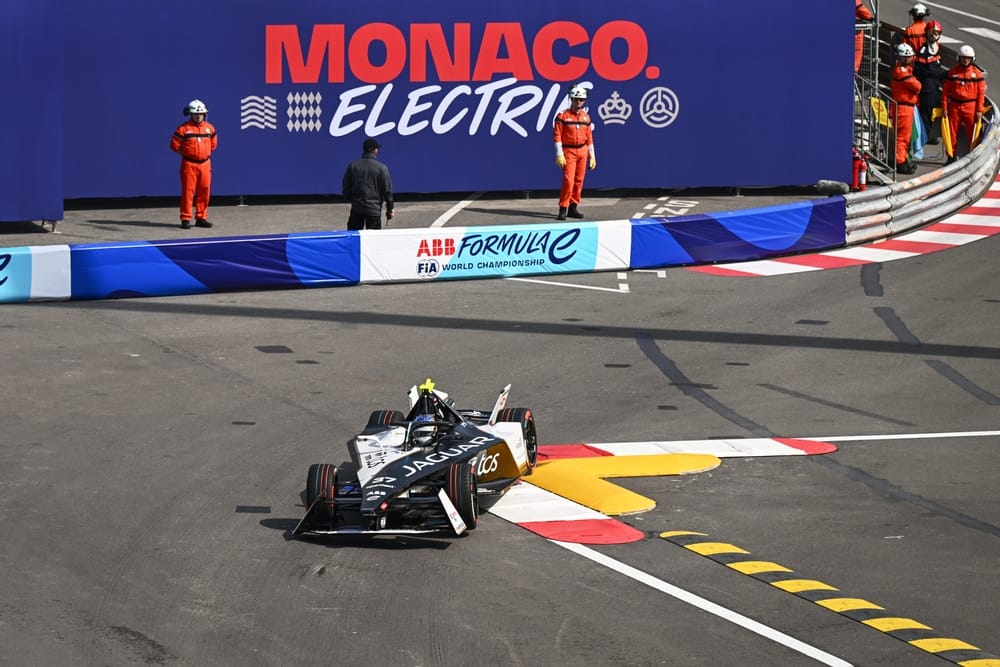
Both Evans and Cassidy had strong pace in qualifying but both fell foul of errors that denied them a potential front-row lock-out that would have created a completely different dynamic to the race.
The first driver through to the #MonacoEPrix Qualifying Final will be... @PWehrlein!
— Formula E (@FIAFormulaE) April 27, 2024
A mistake from Evans hands the @PorscheFormulaE man a place in the Final.#MonacoEPrix pic.twitter.com/qPgKSlIZak
While Evans got his semi-final lap deleted for crossing the Nouvelle Chicane, Cassidy ran wide and glanced the armco on the exit of the Swimming Pool.
“I just clipped the wall, and I probably look at that as the moment maybe that cost me winning the Monaco E-Prix today to be honest,” he confessed.
It was a rare qualifying error. A small one that might have had a fundamental consequence of him scoring 18 points instead of 25 just a few hours later.
JUST clipped the wall! 😬
— Formula E (@FIAFormulaE) April 27, 2024
This is the moment that cost Cassidy a shot at @juliusbaer Pole Position in the #MonacoEPrix. pic.twitter.com/I6jaXuQQcq
But actually, before that he had also endured a difficult second free practice session where he felt he “gone a bit backwards”.
Ahead of the weekend, Cassidy looked like Jaguar’s main title hope - fourth in the standings and only 13 points behind leader Pascal Wehrlein, which was three places and 24 points better off than Evans.
But in Jaguar’s eyes, that’s a long way from a clear number one/number two situation with half the season still to go and it certainly wasn’t going to be asking Evans to play wingman to Cassidy.
Where the race became Evans’s
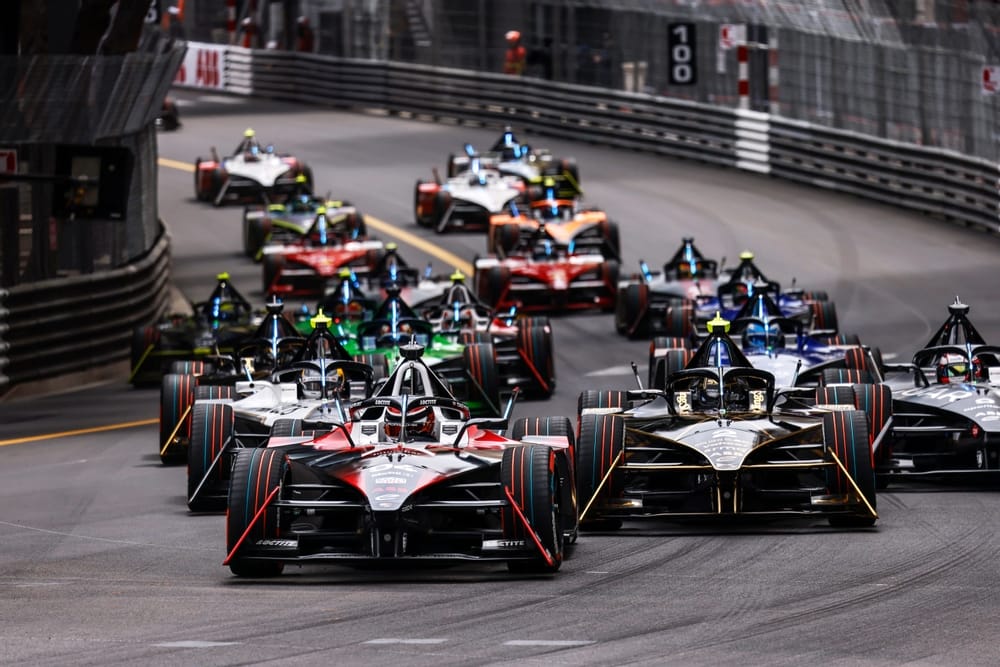
There were four key moments of the Monaco E-Prix that eventually defined it and which Jaguar won.
The first was Cassidy getting too much wheelspin off the startline, allowing Evans to slip though into third position.
Even at that stage Cassidy “kind of thought I was on the back foot so just doing my best to make sure if I couldn’t win my team-mate could”, as he put it to The Race later.
The next was just two laps later when polesitter Wehrlein took his first attack mode at the earliest possible opportunity and gave up the lead to Stoffel Vandoorne’s DS Penske, which in turn was being comfortably tailed by the dual-headed Kiwi Jaguar express train.
Then, quickly, came the third. Wehrlein, still dangerous in speed and confidence, had to give up his position to Jean-Eric Vergne when the Porsche team was instructed by race director Scot Elkins to do so - after a yellow flag had been thrown for debris and Wehrlein had overtaken an attack mode-taking Vergne.
The fourth and maybe most decisive of all was when Evans was trying to get past Vandoorne for the lead and the DS Penske driver was holding on to track position and not letting him pass.
Evans reacted “quickly and backed off”, according to Jaguar team principal James Barclay.
Evans takes the lead in Monaco! 🇲🇨
— Formula E (@FIAFormulaE) April 27, 2024
The @JaguarRacing driver gets past @svandoorne as the @ds_penske_fe man takes ATTACK MODE. #MonacoEPrix pic.twitter.com/LGPpVjaLoK
“It forced Stoffel to take the attack [mode] but there wasn’t enough gap and Mitch came out in front of him,” Barclay explained.
That was when Jaguar was set free to manage the race from the front. As Barclay told The Race, it was “the game changer on the race win and on being able to control the potential 1-2.”
The radio issues that could have wrecked it all
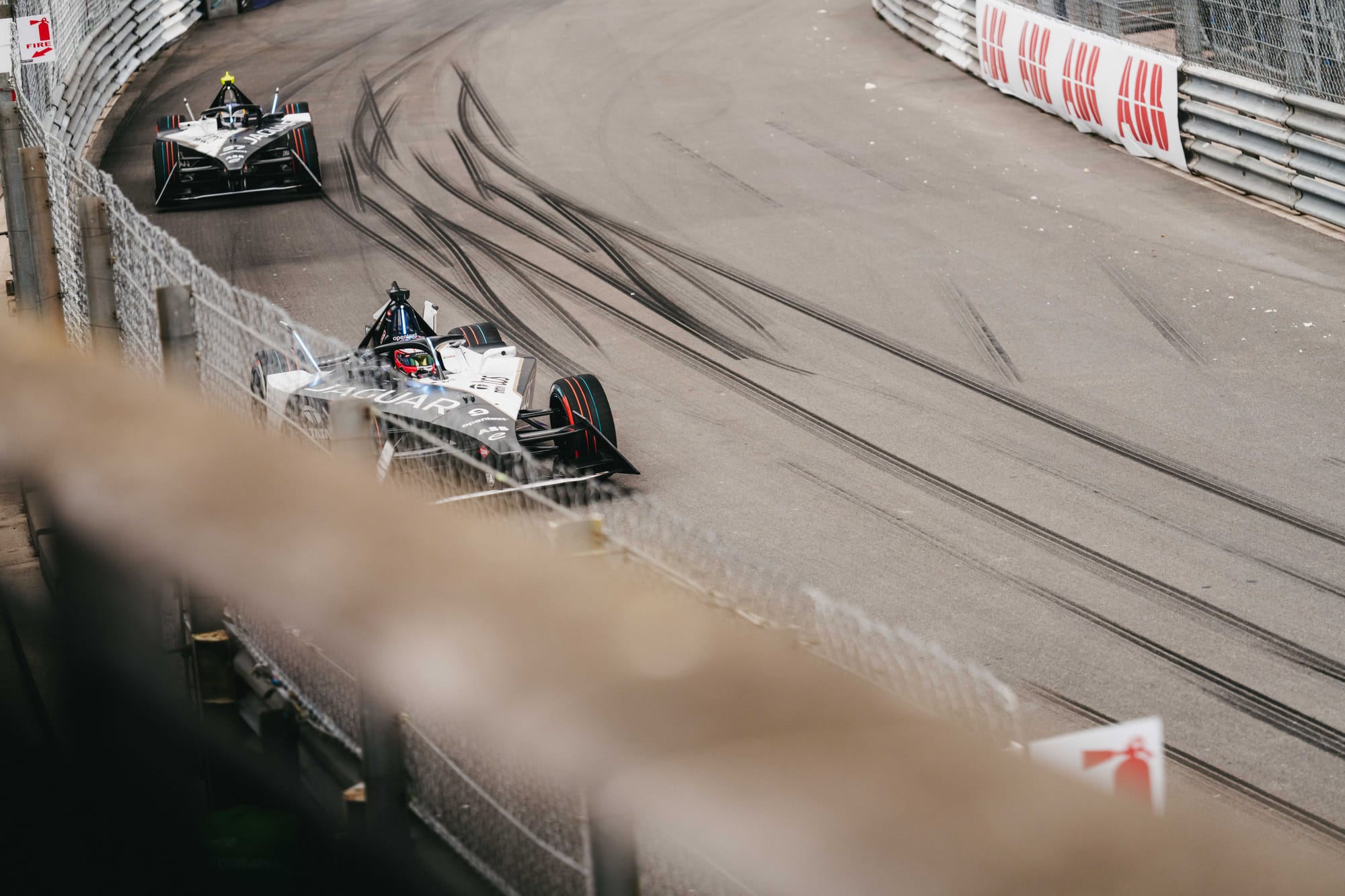
Jaguar had fallen slightly foul of some interference on its pit-to-car radio range before this season in Riyadh when some team orchestration almost, but not quite, fell over while Cassidy and Evans ran close together.
Among the concrete jungle of Monaco some similar struggles surfaced again and threatened similar confusion as the pair forged their way to the front.
“With radios today… man, couldn’t speak, it was hard and we were repeating messages,” said Cassidy.
“It might sound like we were stressed but we’re actually just stressed on whether the messages had gone through or not. Communication was difficult from a radio point of view.”
The inputs were erratic but the reaction was not, as these exchanges between Cassidy and his engineer Phil Ingram attest:
PI: Not copied. Try again exit of Turn 8. Radio very poor.
NC: OK, can you hear me now?
PI: No, yes now.
NC: Yeah, that was my question. About the attack.
PI: Copy, we didn’t get your question, sorry. Wehrlein has attacked.
Confusion and missteps could have reigned but both the drivers and the engineers remained collected. That proved to be a vital ingredient in only Jaguar’s second-ever 1-2 in Formula E.
The telepathy
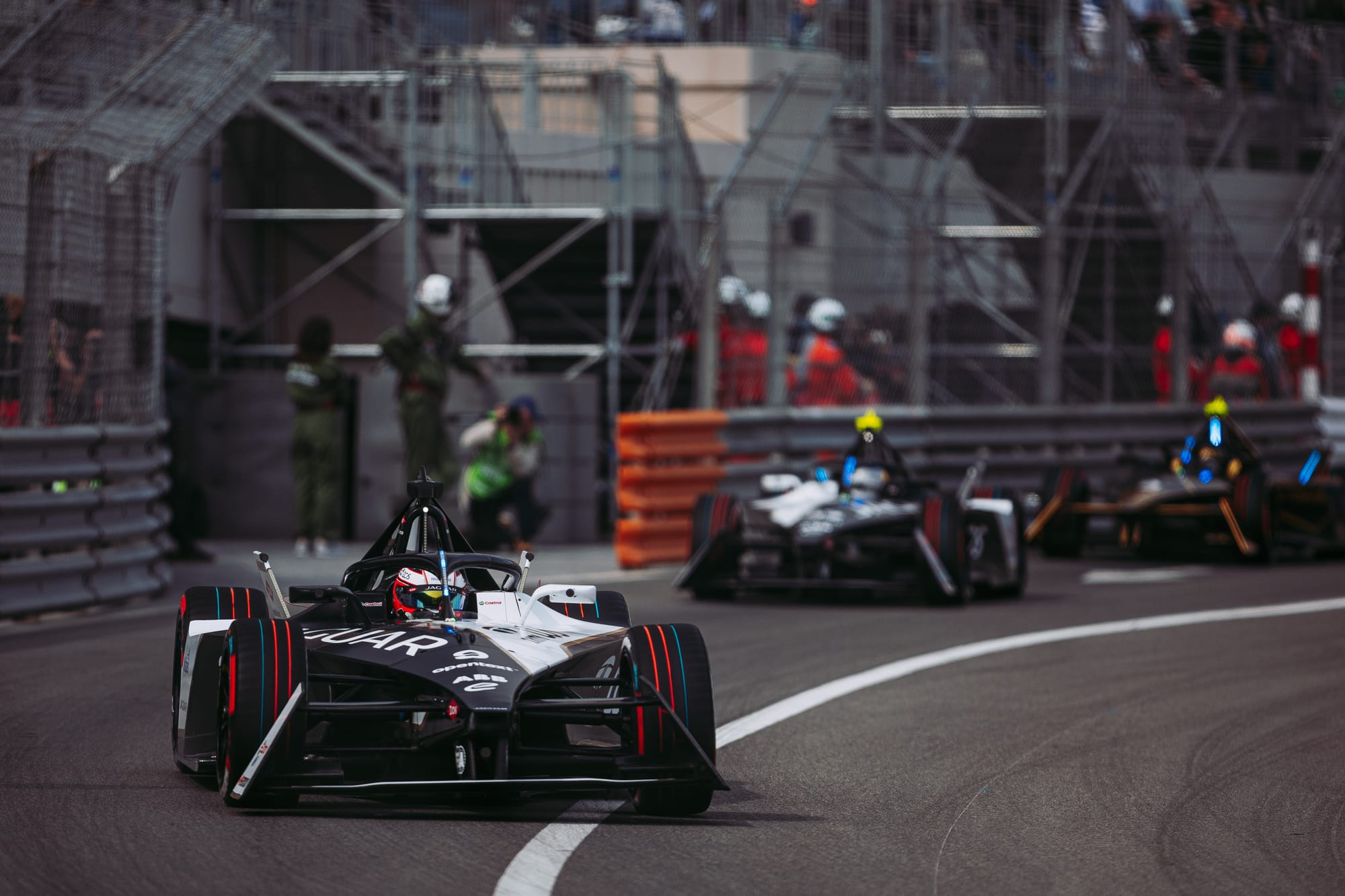
This wasn't a case of Jaguar calling a halt to the battle from the pits or formally applying team orders. The drivers - and particularly Cassidy - had it all in hand themselves.
“There was no need for code words or monkey business. I thought ‘let’s get the job done and let’s get a 1-2’ and I think we executed that really well,” said Cassidy.
At a few stages of the race Cassidy could have turned the 1-2 order around but he elected not to. Despite the comms issues it sometimes felt that the #9 Jaguar was somehow attuned to the #37 one, like the asymmetric liveries of the two Big Cats were blending as one.
“I think [Jaguar] knows that and they see that I’m a team player,” Cassidy said.
“I was pushing for that [hold station situation] myself because I thought we had a good opportunity and I didn’t want to wait a few laps and miss the opportunity or I didn’t want it to not be clear.”
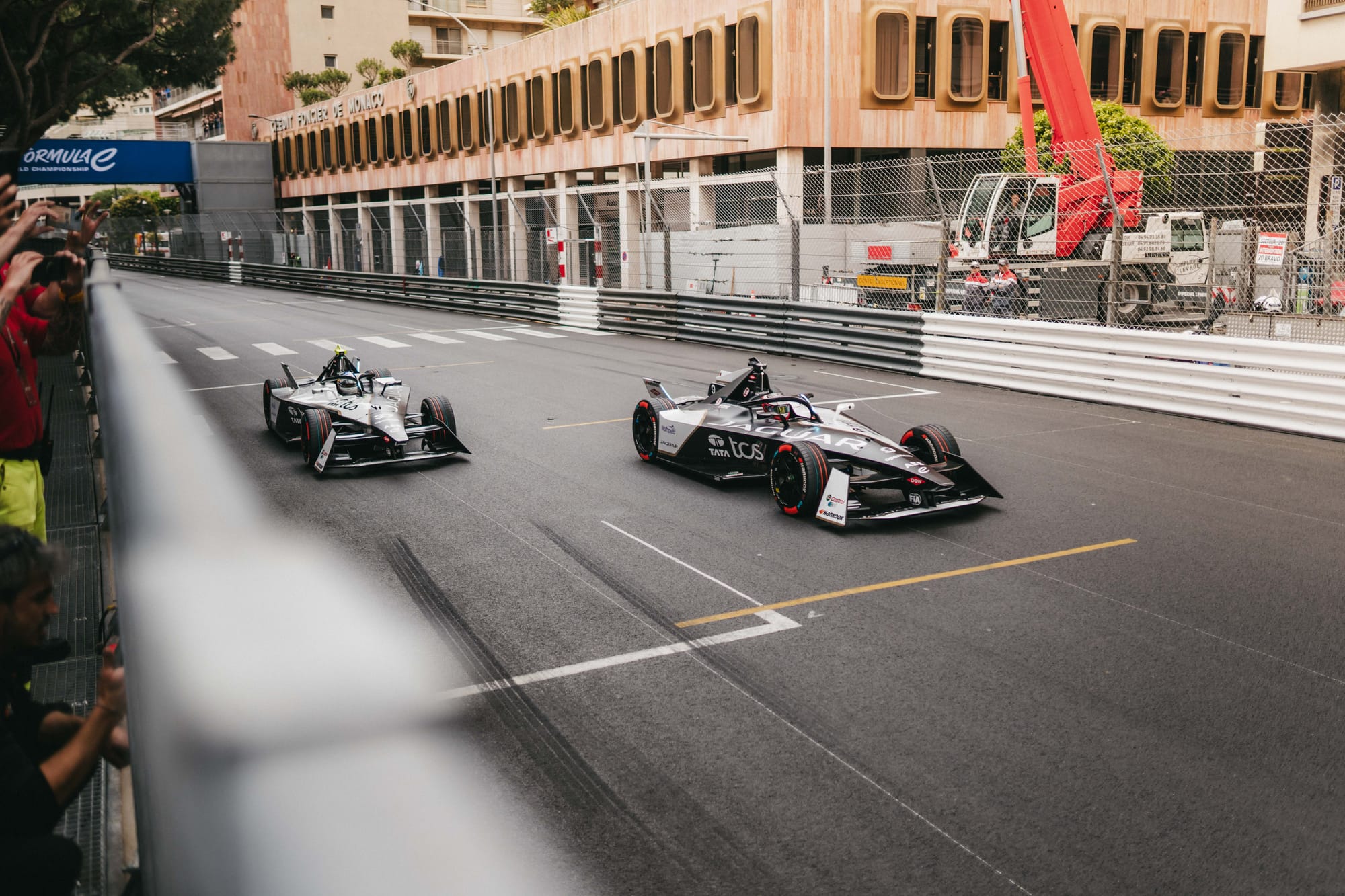
What ultimately decided the result was that both drivers worked incredibly well together and according to Barclay, “Nick actually made the point to say, ‘listen, we shouldn’t take any more risks and do you want me to stay here?’”.
Cassidy was up on Evans energy-wise and could have really pushed it at the end, and perhaps in previous seasons that would have been a temptation. Certainly, it is hard to square the Cassidy/Buemi tactical shambles from London last July at his old team Envision with what was seen in Monaco on Saturday.
“It was a fantastically strategic race, the amount of comms that was happening in that race was almost unprecedented,” said Barclay.
That feeling when you WIN IN MONACO! 🏆⚡️#MonacoEPrix pic.twitter.com/0yOc8VnOaw
— Formula E (@FIAFormulaE) April 27, 2024
“The team was so on the ball; the drivers were almost working with each other telepathically. An incredibly impressive race from the whole crew.
“I’ve said it from the start of the year, their bond of relationship means they understand each other really well and they’re thinking maturely.”
As Cassidy put it on the slowing-down lap: "I think I win team-mate of the year award". Evans was unlikely to disagree.
Evans’s emotional swing
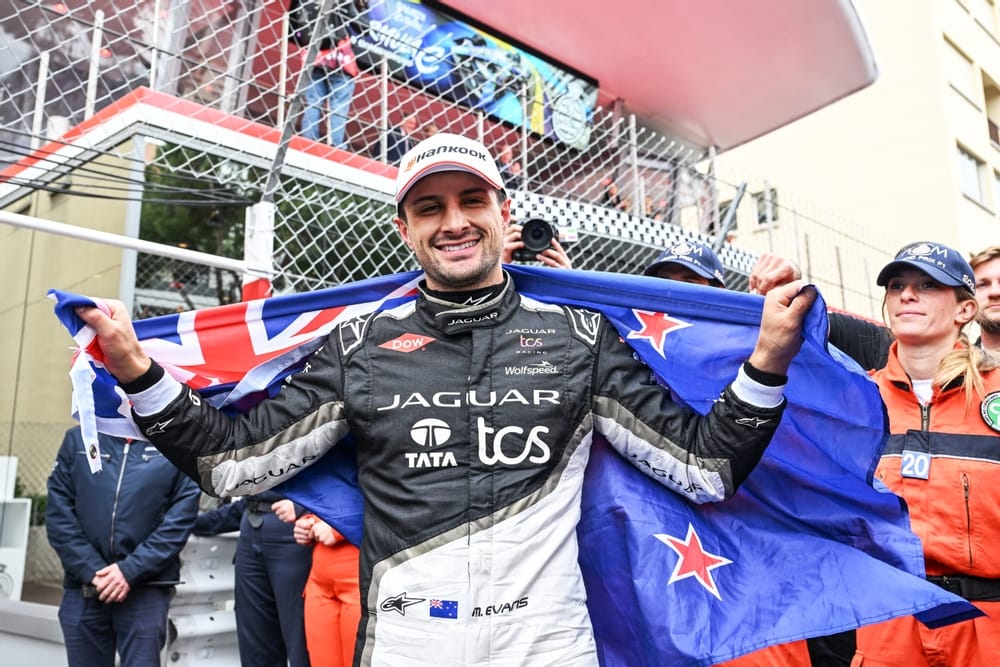
The fact Evans finally won in Monaco meant one part of the slight nearly-man tag he undeservedly sometimes get labelled with has been torn up.
After two Monaco runner-up spots and a third place all between 2021 and 2023, a big old scratch had been itched.
But it was a bit more than that, too. Evans really had to get a maximum score to get one foot back on the title ladder as the midway point of the season arrived.
He came into the weekend only seventh in the championship, 37 points off leader Wehrlein. Now he’s two places higher and 12 points closer, while Cassidy is within seven of the top.
How things look after the #MonacoEPrix ⬇️
— Formula E (@FIAFormulaE) April 27, 2024
“It's my first win in Monaco but it’s my first win of the season – equally important I think as I needed to score big,” said Evans.
“I knew this could be a turning point, I don’t want to force it but fortunately it turned out that way.
“I can’t really afford any non-scoring between now and the end of the championship so hopefully the momentum shifts. I really needed this one.”
So also did New Zealand motorsport after one of its talismanic patrons and enthusiasts, Sir Giltrap, died last week.
“I spent so much time with Colin, since I was a young boy, especially in the later years so it’s been hard to accept that, and to dedicate this win to him means more than anything to me,” said Evans.
“Scott Dixon won last weekend, another driver he got to America and supported heavily, so it seems really fitting that we both won this weekend and last weekend.
“I really dedicate this one to him and his family and everyone at the Giltrap group because if it wasn’t for him, many of us wouldn’t be racing cars for a living.”

